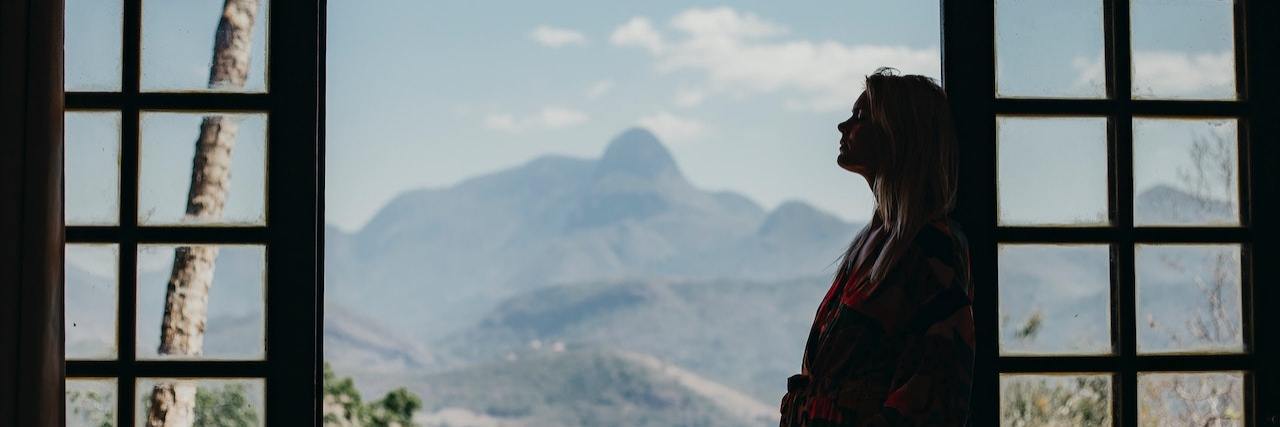Getting sick is scary. When you don’t know what’s causing your illness and have no way of confronting it, it’s even scarier. My first bout of anxiety occurred when I was 14, though I had no name for it at the time. At first, it was just another Tuesday. I walked home from school, had a snack and then played outside with my dog and horse. As always, it made me ravenous just in time to have dinner with my family, which was always at 5 p.m.
While I would play outside, my brother would be in the front room watching television, my dad would be tending to the garden outside and my mom would be in the kitchen cooking. Then, at dinnertime, my family would gather around the table and discuss each other’s day.
It was 4:30 p.m., but my home was as silent and still as a ghost town. There was no usually-boisterous noise echoing from the front room, no new plants or stacks of weeds in the driveway, no sound of sprinklers satiating plants in the garden, and mysteriously, no sound of pots and pans or the oven humming coming from the kitchen. The only noise I could hear was the sound of my heart beating. As the clock ticked past dinnertime and the sky grew darker, it increased in tempo.
I knew where my mom was. Two weeks earlier, she abandoned my family. So, it wasn’t that I knew where she was, but where she wasn’t, and that was at home, making dinner for her family. Certain uncertainty, if you will.
I didn’t know where my brother and father were either. I hoped they hadn’t followed in my mother’s footsteps and made the impromptu decision to drop the family and run away, too. The rational part of me knew they didn’t leave forever — they were out somewhere else, doing something else, without me. But my mother introduced the distinct, existentially terrifying possibility that, at any moment, the person who is supposed to love you the most in the world will one day change their mind and realize that, actually, they don’t love you and leave you in a skeleton of a house, alone and hungry.
These were the thoughts I harbored as I sat alone at the kitchen table, waiting, hoping, dreaming, that dinner would be served soon. I wanted to hear about my brother’s day at school or my father’s day at work. And, most of all, I yearned to hear my mother’s voice again. Silent tears dripped from my eyes, so I would not disturb the peaceful environment of the kitchen, which I once idolized.
Eventually, 4:30 became 5:30, 5:30 became 6:30, and then 6:30 became 7:30, and there was still no dinner or family in sight. Resigning to this new reality, I moped over to the cupboard, pulled out a jar of peanut butter and proceeded to devour the contents inside.
My dad finally stumbled through the front door at around 8 p.m. Except for this time, he reeked of booze instead of smelling like the fragrant trimmings I remembered. My brother never came home that night at all. Neither had behaved this way before today. But it certainly wasn’t the last time, for them or me; I would continue to worry as I sat home alone without a proper dinner in store for me.
Indeed, this was just another Tuesday, the first of many in this new normal. Once a safe, wholesome routine, it was now a pipe dream, corrupted by the harsh realities of family trauma. And the anxiety that resulted from it.
Decades later, after my marriage ended, these same feelings of worry and fear resurfaced, but with greater intensity. As a result of the fallout of my marriage, I found myself home alone in my big empty house at night, locking the doors and cowering in fear on my couch with only a bottle of wine in hand to quiet my nerves, like that jar of peanut butter back when I was a teenager at home. I couldn’t sleep or think or do anything I used to like to do.
I felt stuck relying on coping mechanisms that were doing nothing to relieve the underlying fear I felt. It was like a slow death, leaving me unable to move forward or be happy. So, I sought out a therapist who put a label on how I felt and diagnosed me with generalized anxiety disorder.
Surprisingly, receiving this diagnosis comforted me because now I knew what name to put on the face of the monster that terrorized my mental health for decades. And now I knew where to begin learning more about the disorder and ultimately how to combat these feelings.
Being an avid reader, I read books about anxiety at night. A repeated theme in these books was the concept of meditation as a treatment for anxiety. No longer willing to feel the way I did, I was open-minded about any treatment that I believed could alleviate my anxiety. These books sent me on a journey to learn to meditate, and I got more than I bargained for.
That was 15 years ago. Not only did my anxiety gradually diminish, but meditation gave me the direction I needed to rebuild my life after my divorce. I became stronger and more independent, cultivated a close relationship with my then young son (now all grown up) and started a business helping others learn meditation as a way to help them heal from anxiety and trauma. In the long run, meditation saved my life and still does every day.
Photo by Marcos Paulo Prado on Unsplash

